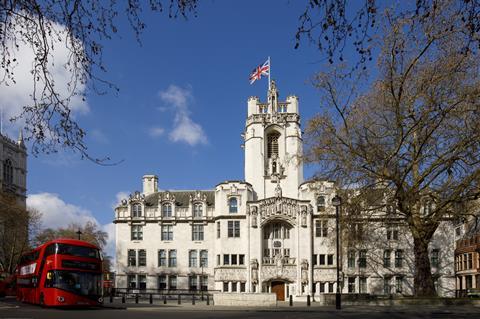Solicitors should not be penalised for protecting themselves from the risk of clients who are unable or unwilling to pay their fees, the Supreme Court has been told.
The court today started hearing the appeal in Candey Ltd v Crumpler & Anor in a case that examines whether a solicitor will be deemed to have waived their right to be paid by taking additional security for their fees. The London-based firm Candey, which had acted in litigation for Peak Hotels & Resorts Limited, argues it was in an ‘invidious position’ of being judged to have inadvertently waived its equitable lien just by taking out the extra security.
After almost 18 months of litigation, Peak owed Candey several hundreds of thousands of pounds in unpaid legal fees and could no longer fund proceedings. A fixed fee agreement and deed of charge was then negotiated between solicitor and client which provided that Peak would eventually pay around £4.7m in fees and outstanding costs.
Peak was wound up in 2016 with Candey replaced by other solicitors, and the liquidators took the view that the deed of charge entered into with Peak was a floating charge rather than a fixed one (and therefore unlikely to be recovered from the insolvency fall-out).

In the Court of Appeal in 2020, Lady Justice Rose ruled that the firm’s equitable lien was waived when the parties entered into the fixed fee agreement and deed of charge.
Candey submitted to the Supreme Court that it was trying to help the client by continuing to act for Peak, and to protect itself, as it was ‘perfectly entitled’ to do.
The firm said the appeal court ruling was a ‘surprising and uncommercial result’ and that a just and reasoned analysis would recognise the importance of protecting the solicitor’s lien and promoting access to justice.
It was argued that the case was of significant importance in the modern day because of the demise of legal aid and the fact that solicitors were increasingly required to take risks in acting for clients who could not pay their fees and needed to make arrangements to defer payment.
The firm submitted that if the court found that a waiver had arisen as a result of the taking of additional security, this would inevitably have a ‘chilling effect’ on a solicitor’s willingness to act for clients in financial difficulty.
‘Candey was faced with a client who was engaged in various proceedings in various jurisdictions, but could no longer afford to continue to instruct lawyers on an ordinary payment basis,’ the firm added.
The court heard that the deed of security was a 'commercial reality' that might not have been appropriate 100 years ago but was necessary in the modern day.
The two-day hearing continues.



























4 Readers' comments